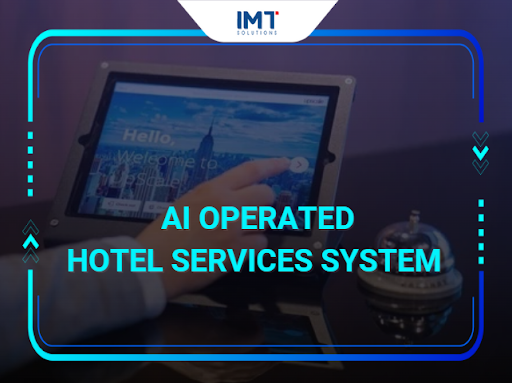AI in Retail – E-Commerce: Demand Forecasting and Inventory Optimization
Retailers face the constant challenge of balancing supply and demand. With the advent of Artificial Intelligence, special in E-commerce, businesses can now leverage advanced algorithms to enhance demand forecasting and optimize inventory management. It’s important to understand how AI-powered solutions are transforming the retail landscape, ensuring efficiency, and maximizing profitability.

Types Of AI Technology Used In E-commerce
AI is not a singular technology; it encompasses various models. There are four leading AI technologies used in E-commerce:
- Natural language processing (NLP): Natural language processing focuses on enabling computers to interpret and generate natural human language. This technology helps analyze thousands of customer reviews and comments to extract sentiments and opinions, helping businesses understand customer perceptions and improve their products and services.
- Machine learning (ML): Machine learning uses statistical techniques, including algorithms, to enable computers to learn from data and make predictions or decisions without being explicitly programmed. Deep learning models—such as transformers and large language models (LLMs) like OpenAi’s ChatGPT—layer algorithms to understand data better. Recommender systems, based on ML algorithms, analyze customer purchasing behaviors and preferences to suggest relevant products, thereby increasing sales and customer satisfaction.
- Computer vision (CV): Computer vision is a field of artificial intelligence that enables computers to interpret information from images and videos. Augmented reality (AR) and CV technologies allow customers to visualize how products will fit into their environment before purchasing them, such as virtually trying on clothes or visualizing furniture in their home. CV can also be used to automate inventory management by analyzing images of storage shelves and identifying missing or misplaced products.
- Data mining: Data mining is the process of discovering data to inform AI algorithms and systems. Data mining helps identify emerging trends and changes in consumer preferences, helping businesses adapt their marketing strategies and product offerings. It also helps evaluate the effectiveness of past marketing campaigns and optimize future ones by identifying the best performing channels and messages.

Inventory Management In E-Commerce
Artificial intelligence (AI) can significantly improve inventory management by analyzing historical sales data and predicting future demand. For example, the use of real-time data, collected via sensors and RFID (radio frequency identification) tags, makes it possible to continuously track the products sold, their location, and their provenance, whether they come from a store physical location or distribution center. Using these sensors, AI provides real-time visibility into inventory. This technology makes it possible to precisely track each product, from its manufacture to its final sale. This allows businesses to monitor inventory status, quickly identify missing or misplaced products, and take instant corrective action. This not only improves inventory management, but also customer satisfaction by ensuring continuous product availability. AI-enabled inventory management can automate replenishment processes by integrating directly with supplier systems. This integration ensures timely and efficient replenishment, minimizing delays and human errors. AI algorithms can determine the ideal times to order new inventory, taking into account production cycles and delivery times, to optimize costs and lead times.
Chatbots And Virtual Assistants In E-Commerce
Chatbots and virtual assistants can act as customer service representatives for e-commerce businesses, answering customer questions and facilitating online shopping with personalized advice. Using AI, natural language processing (NLP), and more recently generative AI, these tools effectively understand and respond to customer requests :
- Effective Customer Interactions: Chatbots and virtual assistants handle simple transactions. They process orders and provide personalized offers. This simplifies managing a large volume of inquiries. They work across various sales channels, such as physical stores, online platforms, and mobile applications.
- Collection of Customer Data: These tools collect valuable customer data. Examples include sizes and demand reasons. This data helps inform product development and improves customer service.
- Improved Payment Process: E-commerce businesses can integrate chatbots into the checkout page. This allows customers to ask questions about product details, high-demand items, and delivery information. They can do this without leaving their shopping cart.
- Customer Service Available 24/7: Chatbots and virtual assistants deliver fast responses around the clock. This allows live support agents to focus on more complex customer service issues. AI can also help reduce customer service costs by automatically resolving disputes and processing refunds.

Dynamic Pricing
Dynamic pricing allows you to adjust prices and offers based on real-time user behavior, global supply and demand, and competitors. With AI, you can anticipate optimal discount opportunities and dynamically determine the minimum discount needed to close a successful sale. AI offers multi-channel retailers greater flexibility in structuring prices. By leveraging AI, retailers can vary prices across different POS channels based on recorded demand.
Read more Modern Payment Solution To Empower Your Business
It also facilitates assortment intelligence, i.e. data-driven optimization of product variety and selection. Assortment intelligence provides insights into your products and competitors, making it easier to adjust your selection and pricing. You can also use AI to align your prices with competitors to ensure your customers always get the best deal.
Customer Preferences Prediction
Predicting customer preferences in e-commerce is a critical area where artificial intelligence offers significant benefits. Using sophisticated machine learning and natural language processing algorithms, businesses can analyze past customer behaviors, website interactions, purchase histories, and even data from social media to anticipate future preferences of customers.
With these predictive analytics, retailers can personalize each customer’s online shopping experience in a very precise way. For example, an e-commerce site can recommend products similar to those already purchased by a customer. This recommendation is based on previous purchasing behavior patterns. Likewise, promotions and special offers can be targeted to match the specific interests and needs of each individual. This helps to increase the chances of conversion and retention.

Fraud Detection And Prevention
Fraud detection and prevention in e-commerce are crucial aspects to ensure the security of online transactions and consumer trust. Integrating artificial intelligence into fraud detection systems allows businesses to better identify suspicious behavior and take effective preventative measures.
Machine learning algorithms can analyze large data sets to spot potential fraud patterns. For example, unusual purchases, fraudulent payment attempts, abnormal customer account activity, and more. These models can be constantly updated and refined as new data becomes available. This helps to improve the accuracy of fraud detection over time.
Using AI techniques such as supervised and unsupervised learning, fraud detection systems can identify weak signals. These signals could indicate emerging fraudulent activity, even if those patterns don’t match existing models.
IMT Solutions Can Help You To Improve Your E-Commerce Methods
By leveraging advanced AI technologies, IMT Solutions offers tailored strategies to enhance your e-commerce platform. From personalized product recommendations and predictive analytics to efficient inventory management and AI-driven customer support. Our solutions are designed to boost your sales, optimize your operations, and create a seamless shopping experience for your customers. Partner with IMT Solutions to stay ahead in the competitive online market and deliver exceptional value to your customers.





